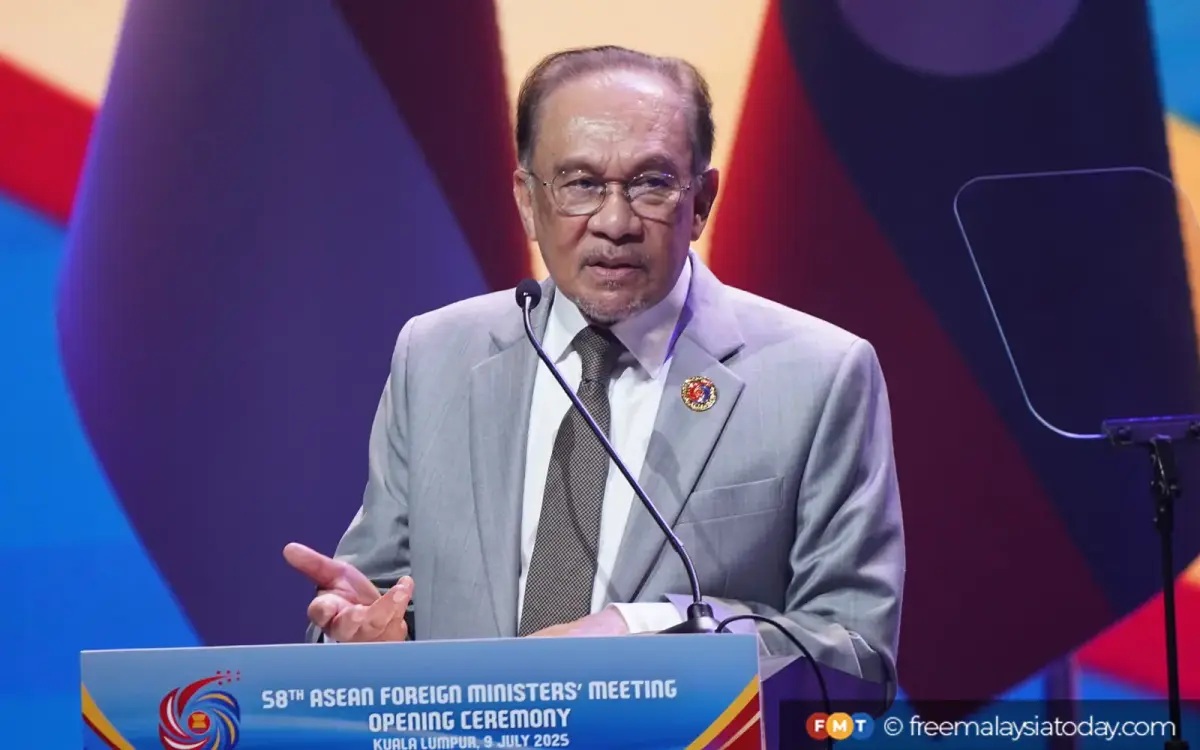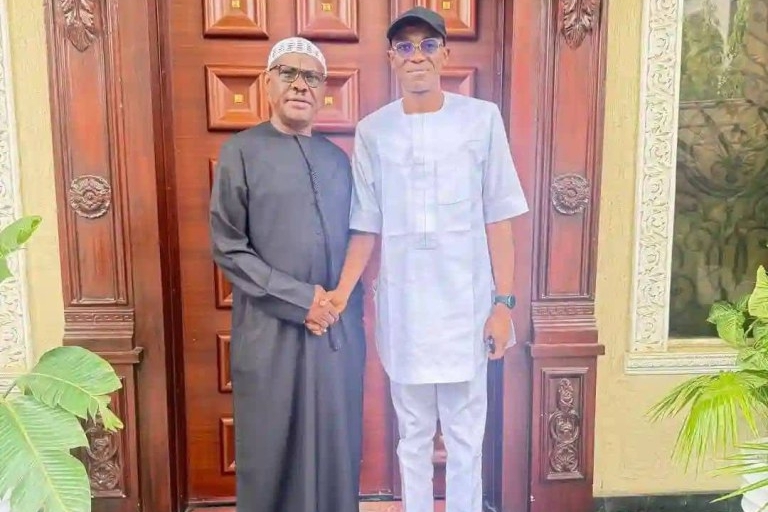News
Malaysia’s Anwar Warns: Trade Now a Geopolitical Weapon

Malaysian Prime Minister Anwar Ibrahim has issued a strong warning about the rising use of global trade as a geopolitical weapon, particularly targeting smaller, developing nations.
His remarks came as Southeast Asian foreign ministers convened on Wednesday for the annual ASEAN summit, held this year under the looming threat of steep tariffs from U.S. President Donald Trump’s administration.
Speaking at the summit’s opening session, Anwar painted a stark picture of the shifting global economic landscape.
He noted that while political power has always played a role in shaping trade dynamics, it is now increasingly redefining the very foundations of international commerce.
“Tools once intended to drive economic growth are now being repurposed to exert pressure, isolate adversaries, and assert dominance,” Anwar said.
“Tariffs, export restrictions, and investment barriers have transformed into weapons of geopolitical rivalry.”
Though he avoided naming Trump directly, his message was clear and timely.
“This is not a passing storm,” he cautioned.
“It is the new weather of our time.”
Anwar’s comments came just ahead of a significant visit from U.S. Secretary of State Marco Rubio, who is embarking on his first official trip to Asia in his new role.
Rubio is expected to attend a series of ASEAN-related meetings, including the East Asia Summit, which will also bring together key regional players such as China, India, Japan, and South Korea.
Washington has framed Rubio’s visit as part of a broader effort to promote a “free, open, and secure” Asia-Pacific region amid China’s growing clout.
On the other hand, trade issues are expected to dominate his discussions with Southeast Asian leaders.
Malaysia is one of six ASEAN nations currently facing the threat of heavy U.S. tariffs unless they can reach new trade arrangements with the Trump administration by August 1.
The White House recently extended a 90-day grace period, which was set to expire on the same day as the summit’s opening.
Without a deal, exports from Malaysia, Indonesia, Thailand, Laos, Cambodia, and Myanmar could be hit with punitive tariffs ranging from 25 to 40 percent.
So far, Vietnam is the only ASEAN member to have secured a trade agreement under the Trump administration’s new conditions, highlighting the growing pressure on the rest of the bloc.
Against this backdrop, Anwar called for deeper ASEAN cooperation and unity in both foreign policy and economic strategy.
He emphasized the need for member nations to confront external challenges head-on, with greater alignment and a shared sense of purpose.
“We must fortify our internal foundations,” he urged.
“That means trading more among ourselves, investing more in one another, and pushing forward with sectoral integration.
“Building a stronger, more interconnected ASEAN economy is not just desirable, it’s essential.
“It will determine our relevance and resilience for generations to come.”
Anwar also made a pointed statement about ASEAN’s autonomy in the face of intensifying global power struggles.
He rejected the notion that Southeast Asia could be divided into spheres of influence or that critical decisions affecting the region should be made by outside powers.
“We are not a region to be spoken for in absentia,” he said. “ASEAN charts its own course, deliberately, coherently, and with intention.”
The Prime Minister’s remarks reflect growing unease in Southeast Asia over the increasing volatility of global trade and the mounting influence of major powers in the region.
With economic interdependence at risk of being replaced by protectionism and rivalry, regional leaders face the urgent task of redefining their collective strategy.
As ASEAN continues to navigate this complex and uncertain landscape, Anwar’s call for unity, integration, and strategic independence may set the tone for the bloc’s future direction.
Whether these goals can be realized in time to shield the region from external economic shocks remains an open question.
For Diaspora Digital Media Updates click on Whatsapp, or Telegram. For eyewitness accounts/ reports/ articles, write to: citizenreports@diasporadigitalmedia.com. Follow us on X (Fomerly Twitter) or Facebook







